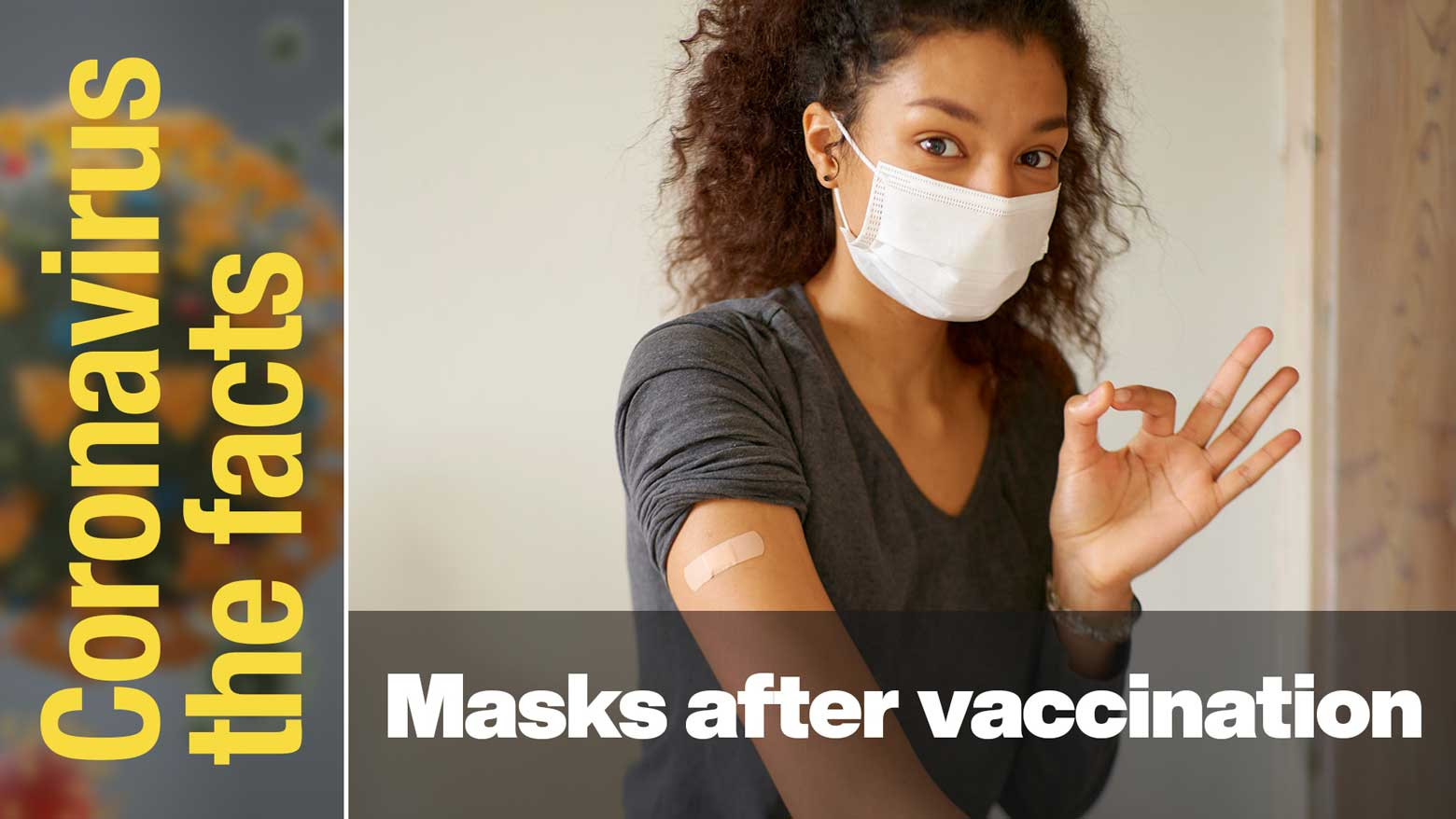This is our series on key coronavirus-related information. Click here to read other installments: #Coronavirus the facts. Find the latest information and answers from experts on everything COVID-19.
Is it OK to stop wearing face masks after you’ve been vaccinated?
No, says Nakano Takashi, a pediatrician and professor at Kawasaki Medical School. He says vaccinations are not 100% effective, and vaccinated people can still spread the virus.
A vaccine’s efficacy is measured by two main criteria: the ability to prevent infection, and to prevent symptoms developing upon infection. Nakano says some reports suggest the Pfizer and Moderna vaccines, currently used in Japan, perform better at symptom prevention than infection prevention. Japan is one of several countries to report cases of infection in people who have been vaccinated. Thus, it is possible for vaccinated people to contract the virus without knowing it, and infect others.
The professor compares the situation to a room for newborn babies at a medical institution. We wear masks to enter, he says, because we could be carrying pathogens without symptoms.
Can I dine with friends if everyone has been vaccinated?
Nakano advises against it, since vaccinations cannot completely prevent infections or symptoms. In addition, it is still unknown how long the vaccine is effective. So, he says, we should continue to take all the usual precautions, including wearing masks.
Professor Nakayama Tetsuo, a virologist at Kitasato University, also urges caution. He says not enough time has passed for us to be certain of the vaccine’s long-term efficacy. And if the pandemic is prolonged, he warns new variants could emerge that don’t respond to the vaccines.
Life seems to be returning to normal in other countries where the vaccination rollout is progressing. Why can’t Japan follow suit?
In May, US President Joe Biden announced that people who had received a full dose of the vaccine could remove their masks except on public transportation. At that point, more than 40 percent of people aged 18 and older fit that criteria. Japan’s vaccine rollout has not come anywhere close to this figure.
One possible factor behind the US approach is political pressure from a population keen to throw out their masks. Nakayama says Biden may have believed that lifting restrictions would motivate more people to get vaccinated.
But Nakano, of Kawasaki Medical School, says Japan faces a very different set of circumstances and should only consider a return to life without masks when a much higher proportion of the population has been vaccinated, and the infection rate has been significantly lowered.
And Nakayama believes we should get used to the idea of wearing masks long after being vaccinated. He says we will be following basic anti-virus measures for another two or three years. But he adds that we could begin discussions on easing restrictions once 40 percent of the population has been inoculated.
What’s the reason for the 40% threshold?
Nakayama says Israel saw infection rates plummet when it reached the 40% vaccination mark, which the US government likely used as a reference point when crafting its guidelines.
Japan could reach that point as early as August, but with the contagious Delta variant spreading throughout the country, it seems unlikely that life will be returning to normal in the coming months.
This information is accurate as of July 1, 2021.
